Nepal: Where The Gods Live
For most people Nepal conjures up images of the Himalayas, but Nepal is much more than that. It is the sanctuary of the main Asian religions, Hinduism, Buddhism and Shamanism, where most traditions have been left untouched by foreign influences. In fact, the Kathmandu valley keeps itself alive with the antique traditions of the virginity cult. For most people Nepal conjures up images of the Himalayas, but Nepal is much more than that. It is the sanctuary of the main Asian religions, Hinduism, Buddhism and Shamanism, where most traditions have been left untouched by foreign influences. In fact, the Kathmandu valley keeps itself alive with the antique traditions of the virginity cult.
The Living Goddess or the Kumari Devi is the most important character for any traditional Nepalese. She is the Goddess protecting the country and it is only after her benediction that the King of Nepal had the permission to lead the country? s affairs for the following year.
Nepal is also a sanctuary of Nature and Races. Its climate, flora and fauna are extremely rich and shelter a number of ethnic groups. These little groups live precariously within harsh natural elements, through heat and cold, subtropical rains and high altitude deserts, and have astonishing communal organisations, which could be considered as a model in our modern society. ?
The arts of Nepal are splendid and in plenty. The country is known of course for its architectural treasures mainly present in the Kathmandu valley. The wooden sculptures of their struts are unique in the world as are the excellent golden bronzes admired in the public places and the numerous temples of Buddhist and Hindu religions. The Buddhist thangka paintings are world famous and the murals of the monasteries and temples evoke envy.
Nepal is home to mysterious festivals and many rituals are still practiced with as much faith and belief as they were centuries ago. Festivals to call the rain through Macchendranath, to celebrate the memory of the dead, to thank the God of rains after the season and celebrate the protective Goddess of the nation and later the call of the Goddess of wealth Laxmi to shower riches on the family. It is endless, there is more than a festival a day. Only the people of each of the different-communities are aware of their own fetes.
Nepal is a place of rich and multiple activities, full of diversities, a refuge of races and the cultures they elaborate.
For most people Nepal conjures up images of the Himalayas, but Nepal is much more than that. It is the sanctuary of the main Asian religions, Hinduism, Buddhism and Shamanism, where most traditions have been left untouched by foreign influences. In fact, the Kathmandu valley keeps itself alive with the antique traditions of the virginity cult.
The Living Goddess or the Kumari Devi is the most important character for any traditional Nepalese. She is the Goddess protecting the country and it is only after her benediction that the King of Nepal had the permission to lead the country? s affairs for the following year.
Nepal is also a sanctuary of Nature and Races. Its climate, flora and fauna are extremely rich and shelter a number of ethnic groups. These little groups live precariously within harsh natural elements, through heat and cold, subtropical rains and high altitude deserts, and have astonishing communal organisations, which could be considered as a model in our modern society. ?
The arts of Nepal are splendid and in plenty. The country is known of course for its architectural treasures mainly present in the Kathmandu valley. The wooden sculptures of their struts are unique in the world as are the excellent golden bronzes admired in the public places and the numerous temples of Buddhist and Hindu religions. The Buddhist thangka paintings are world famous and the murals of the monasteries and temples evoke envy.
Nepal is home to mysterious festivals and many rituals are still practiced with as much faith and belief as they were centuries ago. Festivals to call the rain through Macchendranath, to celebrate the memory of the dead, to thank the God of rains after the season and celebrate the protective Goddess of the nation and later the call of the Goddess of wealth Laxmi to shower riches on the family. It is endless, there is more than a festival a day. Only the people of each of the different-communities are aware of their own fetes.
Nepal is a place of rich and multiple activities, full of diversities, a refuge of races and the cultures they elaborate.
The Living Goddess or the Kumari Devi is the most important character for any traditional Nepalese. She is the Goddess protecting the country and it is only after her benediction that the King of Nepal had the permission to lead the country? s affairs for the following year.
Nepal is also a sanctuary of Nature and Races. Its climate, flora and fauna are extremely rich and shelter a number of ethnic groups. These little groups live precariously within harsh natural elements, through heat and cold, subtropical rains and high altitude deserts, and have astonishing communal organisations, which could be considered as a model in our modern society. ?
The arts of Nepal are splendid and in plenty. The country is known of course for its architectural treasures mainly present in the Kathmandu valley. The wooden sculptures of their struts are unique in the world as are the excellent golden bronzes admired in the public places and the numerous temples of Buddhist and Hindu religions. The Buddhist thangka paintings are world famous and the murals of the monasteries and temples evoke envy.
Nepal is home to mysterious festivals and many rituals are still practiced with as much faith and belief as they were centuries ago. Festivals to call the rain through Macchendranath, to celebrate the memory of the dead, to thank the God of rains after the season and celebrate the protective Goddess of the nation and later the call of the Goddess of wealth Laxmi to shower riches on the family. It is endless, there is more than a festival a day. Only the people of each of the different-communities are aware of their own fetes.
Nepal is a place of rich and multiple activities, full of diversities, a refuge of races and the cultures they elaborate.
Get it now and save 10%
BECOME A MEMBER

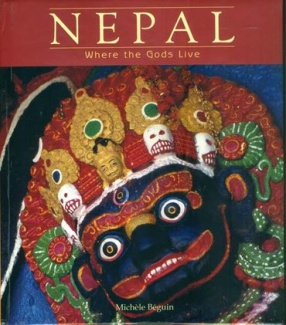
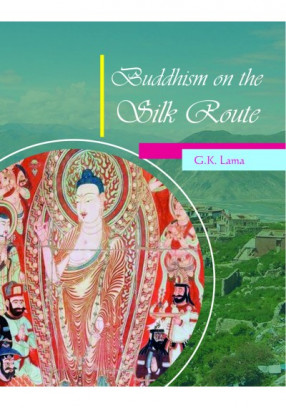
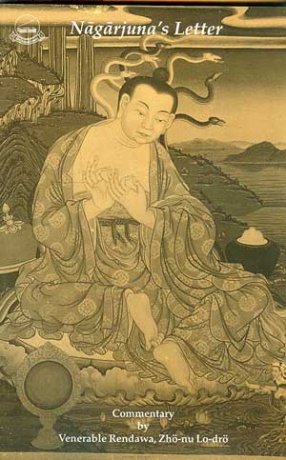
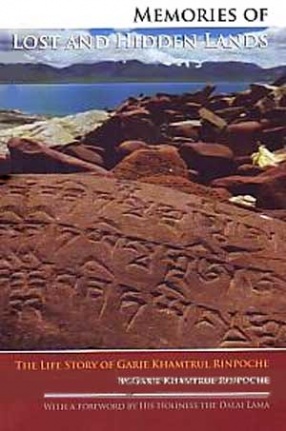
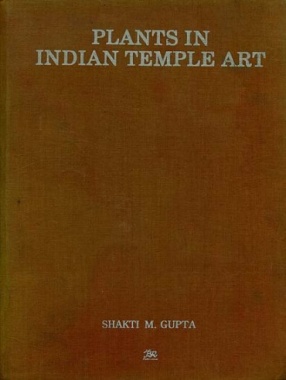

Bibliographic information